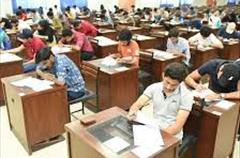The Punjab government has announced a major policy shift aimed at enhancing the safety of female students in women’s universities. Governor Sardar Saleem Haider emphasized that male professors and teachers would be replaced with female educators to create a more secure learning atmosphere. This decision comes as part of broader efforts to curb harassment in educational institutions across the province.

Key Highlights of the Policy
-
Replacement of Male Teachers: Male faculty members at women’s universities will be replaced by female educators.
-
Strict Action Against Harassment: Harassment cases will be dealt with severe consequences.
-
Restructuring of Examination System: New measures will be introduced to prevent blackmail and harassment.
-
Performance-Based Evaluation System: Vice-chancellors and professors will be assessed based on performance metrics.
-
Immediate Implementation: Universities are instructed to enforce these changes without delay.
Why is This Change Being Implemented?
The Punjab government has taken this decision in response to increasing concerns about harassment cases in educational institutions. The move is aimed at creating a more comfortable and conducive learning environment for female students.
Objectives of the Policy
-
Enhancing Safety: Ensuring female students feel secure in their learning spaces.
-
Preventing Harassment: Eliminating potential threats by replacing male faculty members.
-
Improving Academic Integrity: Implementing a transparent examination system.
-
Strengthening Institutional Accountability: Introducing a performance-based evaluation for professors and VCs.
Impact on Women’s Universities
The decision will have both short-term and long-term effects on universities across Punjab. Below is an overview of key impacts:
| Aspect | Expected Impact |
|---|---|
| Faculty Changes | Increased recruitment of qualified female educators |
| Student Safety | Improved sense of security and confidence |
| Examination System | Reduced chances of blackmail and unfair practices |
| Accountability Measures | Stricter evaluation of university officials |
| Institutional Reforms | Faster implementation of safety protocols |
Restructuring the Examination System
One of the major areas of reform is the examination system. The government aims to eliminate loopholes that could be exploited for harassment or coercion.
Key Changes in the Examination System
-
Strict Monitoring: Enhanced supervision to ensure fairness.
-
Anonymous Grading: Implementing systems where examiners do not know the identity of students.
-
Digital Evaluation Methods: Reducing face-to-face interactions in grading processes.
-
Independent Review Panels: Establishing independent bodies to review complaints and results.
These measures will help ensure that female students can focus on their academic performance without fear of harassment or unfair treatment.
Evaluation System for Professors and Vice-Chancellors
A new performance-based evaluation system will be introduced for vice-chancellors and professors to maintain high standards of education and accountability.
Evaluation Criteria
-
Teaching Performance – Quality of instruction and student feedback.
-
Research Contributions – Impact of research in respective fields.
-
Institutional Development – Efforts made for improving university infrastructure and resources.
-
Student Satisfaction – Feedback from students regarding faculty conduct and academic environment.
-
Compliance with Policies – Adherence to newly implemented reforms.
Based on these evaluations, university staff may be rewarded or face disciplinary action, depending on their performance.
Challenges and Concerns
While this policy aims to improve safety and education quality, there are some challenges associated with its implementation:
-
Recruitment of Qualified Female Teachers: Ensuring enough female educators are available to fill the vacant positions.
-
Resistance from Male Faculty Members: Addressing concerns from male teachers who may feel unfairly targeted.
-
Infrastructure Adjustments: Making necessary changes to accommodate the new faculty members.
-
Ensuring Effective Oversight: Implementing mechanisms to monitor the policy’s success.
To address these concerns, the government must take proactive steps, such as conducting training sessions, providing support for transitioning faculty, and ensuring the availability of resources for female educators. Implementation Timeline
The Punjab government has instructed all universities to implement these changes without delay. However, a phased approach may be adopted to ensure smooth execution.
| Phase | Action Items |
| Phase 1 | Identify and recruit qualified female educators |
| Phase 2 | Conduct training for new faculty members |
| Phase 3 | Implement examination system reforms |
| Phase 4 | Initiate performance-based evaluations for staff |
| Phase 5 | Monitor and assess policy effectiveness |
Regular audits and student feedback mechanisms will also be established to measure the success of these reforms.








.gif)





























